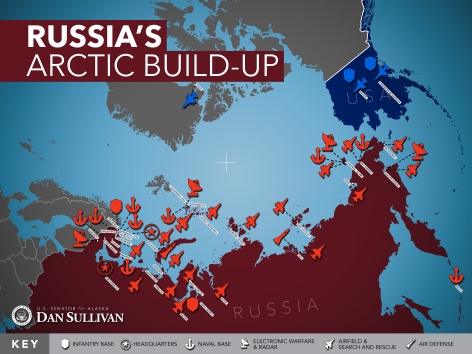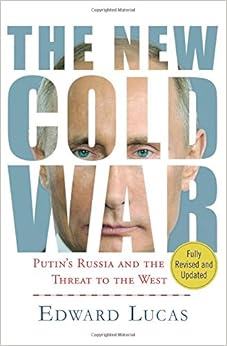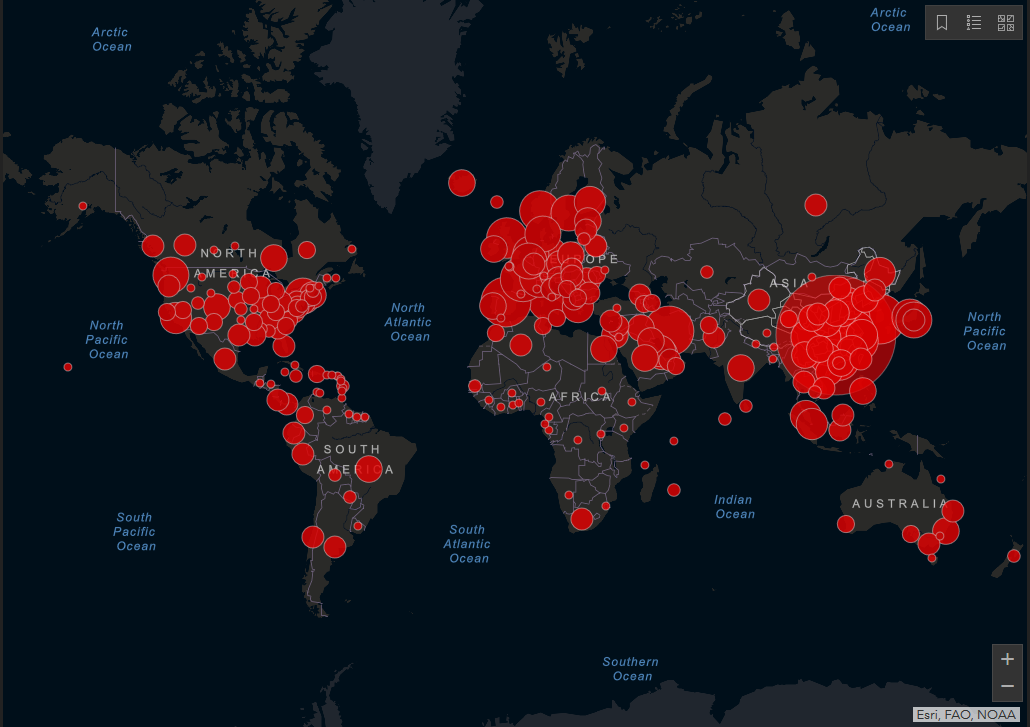> On March 24 Igor Smirnov, the “ex”-communist president of the unrecognized Pridnestrovian Moldovan Republic, or simply Transnistria, invited Russia to establish a full-blown military base in the diminutive country wedged between Moldova and Ukraine. “If Russia needs military bases here, we have legislation on Russian troops,” Smirnov informed journalists. Possibly in response to Smirnov’s saber rattling, Novosti reports, Moldovan President Vladimir Voronin pulled out of a meeting with Smirnov, scheduled to take place the next day.
On March 24 Igor Smirnov, the “ex”-communist president of the unrecognized Pridnestrovian Moldovan Republic, or simply Transnistria, invited Russia to establish a full-blown military base in the diminutive country wedged between Moldova and Ukraine. “If Russia needs military bases here, we have legislation on Russian troops,” Smirnov informed journalists. Possibly in response to Smirnov’s saber rattling, Novosti reports, Moldovan President Vladimir Voronin pulled out of a meeting with Smirnov, scheduled to take place the next day.
One week prior to Voronin’s snub, the leaders of Russia, Moldova, and Transnistria agreed to continue talks on the issue of Transnistria’s status at a meeting in Moscow. They reiterated their commitment to the “five-plus-two formula,” which includes Russia, Ukraine, the Collective Security Treaty Organization (CSTO), the European Union, and the USA, as well as the two “disputing” parties, Moldova and Transnistria. Smirnov has also expressed interest in either joining Russia outright or possibly the Union State of Russia and Belarus.
Pictured above: Voronin and Smirnov attend “kiss and make up” meeting at Tiraspol, on December 24, 2008.
Relations between Moldova and its ethnically Russian separatist region have been tense since March 1992, when Moldova declared independence from the Soviet Union, and Transnistria in turn proclaimed itself an independent republic. Russia has maintained a small garrison of peacekeepers in Transnistria since July 1992, but the negotiation process for troop withdrawal was suspended in February 2006. Under the Joint Control Commission, Russia is permitted to field a maximum of 385 peacekeepers on Transnistrian (Moldovan) soil.
In view of the fact that the governments in Moscow and Tiraspol are both connected to the old Soviet regime, while the government in Chisinau is openly communist, one should be forgiven for concluding that the whole dispute between Moldova and Transnistria is part of the long-range Soviet deception. The primary purpose of the dispute would probably consist of confusing Western analysts into believing that the former communist regimes of Eastern Europe are disunited.
A military base, per Smirnov’s invitation, would institutionalize and no doubt enhance the Russian presence in the unrecognized state. A fully equipped air base in Transnistria, moreover, could conceivably serve as a stopover for the Kremlin’s strategic bombers en route to Southern Europe, the Balkan Peninsula, or the Middle East. Russia is illegally building military bases in Abkhazia and South Ossetia, Georgia’s separatist regions that are recognized only by Russia and neo-Sandinista Nicaragua. Moscow has also threatened to construct a naval base on Abkhazia’s Black Sea coast and is presently building a naval base in the Russian Black Sea port of Novorossiisk.
The Russian Navy views Novorossiisk as an alternative to the Black Sea Fleet’s headquarters in Sevastopol should the Ukrainian government, which is also deceptively connected to the old Soviet regime, finalize plans to evict the Russians in 2017. “The infrastructure is being built under the federal program for the construction of a naval base in Novorossiisk until 2020,” Vice Admiral Oleg Burtsev, deputy head of the navy’s general staff, told Novosti. The Black Sea Fleet, Burtsev continued, must deploy eight to 10 submarines as soon as possible to bolster the overall strength of the armed forces in southern European Russia. The fleet currently deploys one Project 877 Kilo-class diesel-electric submarine, while an outdated Project 641 Foxtrot-class sub is being overhauled. Almost two weeks ago we blogged that at least 10 Russian nuclear-armed attack submarines, commissioned with the Northern and Pacific Fleets, are presently patrolling the world’s oceans.
On March 27 the Russian Security Council, which is chaired by former chief of the Federal Security Service, Nikolai Patrushev, announced that the FSB will organize an Arctic Group of Forces to protect Kremlin interests in the polar region. “However, it does not mean that we are planning to militarize the Arctic. We are focusing on the creation of an effective system of coastal security, the development of arctic border infrastructure, and the presence of military units of an adequate strength,” a Kremlin spokesentity soothed. The Arctic Group of Forces will utilize assets of the navy’s Northern and Pacific Fleets and military districts that border the Arctic Ocean.
The security council published its designs for the North Pole at its website under the document “The Fundamentals of Russian State Policy in the Arctic Up to 2020 and Beyond.” In the last four years Russia has carried out two Arctic expeditions, the first to the Mendeleyev underwater island chain in 2005 and the second to the Lomonosov Ridge in 2007, to lend credence to its territorial claims in the region. Moscow intends to submit documentary support to the United Nations on the external boundaries of Russia’s territorial shelf by 2010.
Canada, the USA’s closest ally and the other half of NORAD, has not taken kindly to neo-Soviet expansionism in the polar region. Even as Moscow broadcast its plan to form an Arctic military force, a spokesperson for Canada’s Foreign Affairs Minister Lawrence Cannon huffed: “Canada is an Arctic power. The government is engaged in protecting the security of Canada and in exercising its sovereignty in the North, including Canadian waters.” Catherine Loubier explained: “Canada plans to have more Arctic patrol vessels, construct a deep water port and eavesdropping network in the region, hold annual military exercises, and boost the number of Inuit Arctic rangers keeping an eye on goings-on along our northern frontier.”
While Canada has every right to exercise sovereignty in its Arctic region, it is unlikely that the Kremlin gangsters will be frightened by these trivial assertions of power. Ultimately, Canadians depend on Washington’s goodwill and nuclear arsenal to keep the Soviets out of North America.
 Pictured here: A previous summit of the SCO in Astana, Kazakhstan, held on October 30, 2008.
Pictured here: A previous summit of the SCO in Astana, Kazakhstan, held on October 30, 2008.
Moscow Moves in the Middle East and Southwest Asia
Elsewhere, the Shanghai Cooperation Organization (SCO), which embodies the Moscow-Beijing Axis, continues to extend its influence throughout Asia by wooing observer states like Iran and Pakistan into full membership with an organization that has become unashamedly militaristic in its objectives, to wit a third Sino-Soviet war game to take place this year. Novosti reports that declared nuclear power Pakistan, like incipient nuclear power Iran, is also seeking complete absorption into this new Eurasian Communist Bloc.
“I hope that one day we will be invited to join this organization,” Pakistani Foreign Minister Shah Mehmood Qureshi announced last Friday, as he attended the SCO shindig in Moscow. “We are currently reviewing the situation in Afghanistan and its influence on neighboring states” Qureshi explained, ominously adding, “Russia and China could play a key role in improving the situation in the impoverished state.”
Like the CSTO, with which it shares a memorandum of understanding, the SCO serves as the Moscow-Beijing Axis’ counterweight to NATO. The organization embraces Russia, China, Kazakhstan, Tajikistan, Kyrgyzstan, and Uzbekistan. Iran, India, Mongolia and Pakistan have observer status. Russia assumed the SCO presidency last August.
The present SCO get-together in Moscow is a veritable super-summit of communist, “post”-communist, semi-communist, and pro-communist states, with predictable endorsements from the United Nations and the Obama Administration. Foreign ministers from SCO member and observer states are not the only delegates in attendance. Afghanistan, Turkey, and the USA also sent representatives. UN Secretary General Ban Ki-moon and the heads of CSTO, the Organization for Security and Cooperation in Europe, and the Organization of the Islamic Conference, of which is Russia is an observer state, are also taking part in the event.
Russia, not surprisingly, is not content to meddle in its old stomping grounds in Afghanistan, but has decided to extend its influence into post-Baathist Iraq, by supplying military equipment to the US-backed government there. On March 31 Novosti reported that Moscow will ship 22 Mi-171 Hip transport helicopters to Baghdad. According to a spokesman for Helicopters of Russia, Iraq’s Airfreight Aviation Ltd. signed a contract at an unstated time with the Ulan Ude helicopter plant for an undisclosed sum. The Ulan Ude factory, which is based in East Siberia, manufactures Mi-171 transport and Mi-171Sh combat/transport helicopters. Russia’s chummy, new-found relationship with Iraq, former US President George W. Bush’s showcase for “Middle East democracy,” represents the tip of the iceberg with respect to the Kremlin’s geopolitical designs in the region.
Putatively committed to settling regional conflict through its membership in the Middle East Diplomatic Quartet, Russia does not hesitate to arm Israel’s most embittered enemies, the Palestinian Arabs. Novosti reports that Russian Foreign Minister Sergei Lavrov announced that Moscow will soon ship 50 armored personnel vehicles (APCs) to the Palestinian Authority. “All of these 50 armored vehicles will be taken from the Defense Ministry’s available resources–that is to say, from depots where mothballed vehicles are stored,” a source in the Russian Defense Ministry revealed. The same source explained that on-board weapons would be removed from the APCs prior to delivery. The Soviets first offered armored vehicles to the Palestinian Authority in 2005 to help the Fatah terrorist regime in Ramallah “maintain order” (meaning, suppress the populace and attack Jewish settlers). Fearing the vehicles could fall into the hands of Hamas, which has controlled Gaza since 2007, Israel first opposed the idea but the spineless government of then Prime Minister Ariel Sharon subsequently agreed to the shipment of “weapon-less” military vehicles.
 Pictured here: G20 summiteers at the ExCel Centre, in east London, on April 2, 2009. The US and Russian presidents are standing in the middle row, left and center, respectively.
Pictured here: G20 summiteers at the ExCel Centre, in east London, on April 2, 2009. The US and Russian presidents are standing in the middle row, left and center, respectively.
Financial Crisis Forces Resignation of Hungarian and Czech Prime Ministers, United Nations Joins Russia and China in Urging Global Currency
The global financial crisis has brought down two more Not-So-Former Soviet Bloc governments, those of Hungary and the Czech Republic, in addition to Latvia’s in February.
On March 21 Hungary’s unpopular prime minister Ferenc Gyurcsany resigned, effectively acknowledging the inability of the minority ruling Hungarian Socialist Party to counter the regional effects of the world recession. In the 1980s, when Hungary was an open communist dictatorship, Gyurcsany led the youth section of the party’s previous incarnation, the Hungarian Socialist Workers’ Party. Not so coincidentally, outgoing PM Gyurcsany visited Russia barely two weeks ago before his resignation. At the time he conferred with both “President” Dmitry Medvedev and Prime Minister Vladimir Putin, Russia’s KGB-communist dictator. Was Gyurcsany’s departure from Hungarian politics the subject of discussion with his Moscow masters? We can only speculate, but it seems likely.
György Surányi, economist and former “dissident,” is being touted as the next head of government. In 1986 Surányi, then a technocrat in the Finance Ministry’s Financial Research Institute, co-authored a study on political and economic reform that prompted Hungary’s communist rulers to dissolve the institute. In other words, Surányi bears all the hallmarks of a communist-controlled dissident. The former president of the “post”-communist Hungarian National Bank and current chairman of CIB Bank presently enjoys the backing of both the Hungarian Socialist Party and the small Free Democratic Party. This means, of course, that Surányi has Moscow’s imprimatur.
Last week the Czech Republic’s prime minister Mirek Topolanek also resigned, citing the country’s economic woes as pretext. The collapse of Topolanek’s center-right government, reports The Telegraph, threatens to destabilize Prague’s six-month presidency of the European Union, leaving the federation “rudderless” ahead of a crucial Group of 20 summit in London underway today. Topolanek offered the following explanation for his resignation and refusal to institute a caretaker government until his country’s EU presidency expires on June 30: “I believe it can complicate our negotiating power. Partners in Europe have grown used to us negotiating hard. In this sense it can happen that our position will be weakened. Political instability will only deepen uncertainty and concerns, and will hurt the chances of successfully overcoming the consequences of the economic crisis.”
Like Gyurcsany, in the early part of his political career Topolanek belonged to the youth section of Czechoslovakia’s ruling communist party. The no-confidence vote that brought down Topolanek’s cabinet will most likely delay Czech ratification of the EU’s Lisbon Treaty until the autumn, after elections that the communist-infiltrated Social Democratic Party hopes to win.
Last, but definitely not least, the United Nations, an embryonic world government jointly founded by the Soviets and Council on Foreign Relations in 1945, joined Russia and China in blessing the concept of a global currency reserve system to replace the dollar-based system. The UN panel pontificated on the importance of “reforming” (socializing) the world’s financial system:
A new Global Reserve System — what may be viewed as a greatly expanded SDR (Special Drawing Rights), with regular or cyclically adjusted emissions calibrated to the size of reserve accumulations, could contribute to global stability, economic strength and global equity.
Recovery would require all developed countries, in the short term, to take strong, coordinated and effective actions [meaning socialism] to stimulate their economies.
This would lay the basis for the long-run [socialist] reforms that will be necessary if we are to have a more stable and more prosperous global economy and avoid future global crises.
The panel is chaired by Joseph Stiglitz, the US economist who has lauded the nationalization (communization) programs of Venezuelan President Hugo Chavez. Taking up the slogan “Cough up some more dough, Mack,” the Stiglitz panel proposed that developed countries bail out developing ones with anti-crisis packages (which would thrill Nicaragua’s panhandling Marxist dictator Daniel Ortega), impose more market regulation everywhere, and create yet another UN agency, to be called the Economic Council. Last Wednesday International Monetary Fund managing director Dominique Strauss-Kahn conceded that discussions on a new global reserve currency to replace the US dollar were “legitimate” and will take place “in the coming months.” That’s nice. Where would you like that mark, sir? On your forehead or right hand?






>I think it’s just obviously stupid to promote a new currency. How will these idiots know they won’t inflate that new currency?
>It also seems that the Kremlin is preparing for an assault on Ukraine and Eastern Europe with Transnistria as its base.
>If any anti-Communists ever come into power in the USA, “economists” like Joseph Stiglitz wouldn’t dare set foot in the White House.Too bad they are being invited into the White House thanks to Comrade Barry’s pro-socialist policies.